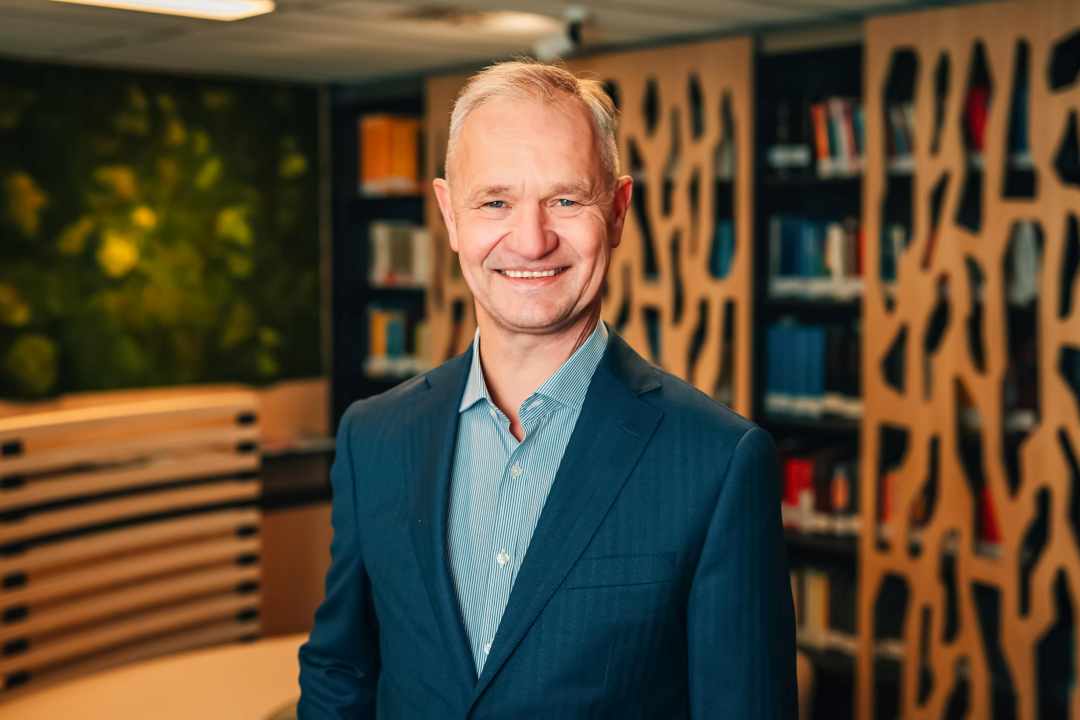Dr. Ernst Giese (Giese & Partner) is a member of the organizing committee for the Autumn Conference 2024 of the AEEC (Association of European Energy and Climate Lawyers). He’ll be giving the opening address and speaking about implementation challenges and opportunities from recent EU Legislation for decarbonising the building and heating sectors in the Czech Republic. ThePrime is a media partner for the event, which takes place November 14.
How did the idea for this conference come about and what are you hoping to achieve with it?
With the heating and the building sector offering enormous decarbonisation potential, the EU has adopted under the Green Deal ambitious target levels and strong measures which will now have to be transposed into national frameworks and implemented through concrete actions by authorities, the industry and further relevant stakeholders. In this context, the conference was designed to bring key stakeholders together and address legal, regulatory, financial as well as technical challenges and solutions, in order to improve the understanding of evolving needs for legal support among the client base of the AEEC law firms, who are operating in Czech Republic and 27 other European jurisdictions.
What I find interesting about the discussion you’ve prepared is that you’ll be tackling the question of existing buildings and district heating plants. These are the two biggest contributors to CO2 emissions. What’s your goal in bringing these worlds together?
EU decision-makers have repeatedly underlined that a holistic approach in undertaking decarbonisation efforts is central to their success. Therefore, the AEEC conference brings together EU and national decision-makers and legal experts, as well as the perspectives from heating providers and the housing sector, with the latter two of whom expected to cooperate much closer and coordinate the implementation of solutions that include the integration of on-site renewables (incl. geothermal), the interaction with electricity and gas networks, increased electrification of heating, energy sharing, smart energy management systems that allow for demand response, aggregation, flexibility provision etc.
You’re also exploring the issue of the residential market, which presents a trickier problem. Most corporate tenants are motivated by their net-zero goals. But in this inflationary environment, private families are mostly worried about their bottom line.
Under the new EU ETS (or ETS2) that will apply from 2027 onwards and cover CO2 emissions from fuel combustion in buildings (as well as road transport and additional sectors, mainly small industry not covered by the existing EU ETS), there are expected to be strong financial incentives to implement decarbonized solutions in heating and the building sectors. To alleviate additional burden on households, a Social Climate Fund (SCF) will be dedicated, using a share of the revenues generated by ETS2, to support vulnerable households and micro-enterprise. In parallel, Member States will be required to use the remaining ETS2 revenues for climate action and social measures, and report on how this money is spent.
The cut-off of oil from the east two years ago took everyone by surprise. What challenges are the heating sector facing currently facing in terms of meeting their ESG obligations?
The integration of renewable energy into existing heating systems poses technical challenges. Many current systems are not designed to accommodate the variability of renewable sources, which can lead to reliability issues. Moreover, aligning district heating networks with renewable heat sources requires careful planning and collaboration among stakeholders. These challenges highlight the need for a coordinated approach among industry stakeholders, government entities, and consumers to promote sustainable practices and technologies in the heating sector.
How difficult is it for you to keep your clients in the heating and building sectors up to speed on decarbonisation requirements? Have you noticed differences in the way the new rules are enforced (and adhered to) between clients in Western compared to Central Europe?
Our law firms are closely following and/or are actively involved in the transposition and implementation processes of recently adopted EU legislation (incl. the revised Renewable Energy Directive, the Energy Performance of Buildings Directive, the Energy Efficiency Directive) that are conducted by national authorities and regulatory bodies, in consultation with stakeholders that include our legal experts. That means that keeping clients informed is per se not very challenging. The enforcement of new rules depends much on the respective political climate and orientation of the governing parties who are in charge. Therefore, it’s not so much a matter of Western or Central Europe, but of the ambition and convictions demonstrated by decision-makers.
Confirmed speakers include:
Dr. Ernst Giese (Giese & Partner)
Prof. Christian Held (BBH)
Stefan Moser (European Commission)
Mgr. Nathalie Marková (Ministry of Industry and Trade)
Ing. Jan Sedláček (Teplárna Liberec)
Lovisa Fricot Norén (Vattenfall)
Sebastian Kirchmann (Stadtwerke Schwerte GmbH)
Dr. Rudi Rienzner (Ötzi Strom)
Ing. Zbyšek Ryvola, MSc. (ENETIQA a.s.)
Stefan de Goeij (Cushman & Wakefield)
Markus Terboven (Gewobag)
Markus Marline (Sigeman & Co)
Alisa Obert (BBH)






